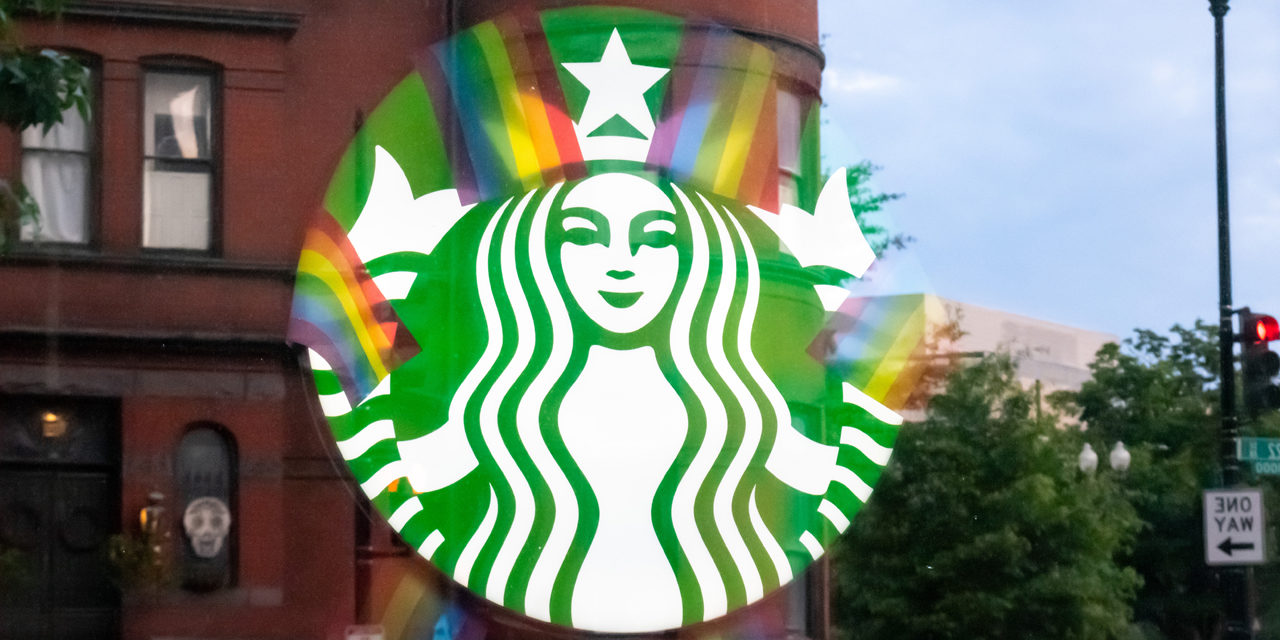Betsy Fresse, a Christian who worked for Starbucks as a barista, filed a lawsuit against the company in federal court in New Jersey. She says she was fired for refusing to wear an “LGBT Pride” shirt during the June 2019 pride month. She told her manager she could not do so because of her Christian beliefs and values.
The suit alleges that requiring Fresse to wear a Pride T-shirt “would be tantamount to forced speech and inaccurately show her advocacy of a lifestyle in direct contradiction to her religious beliefs,” NJ.com reported.
Fresse says she “holds no enmity toward individuals who ascribe to the LGBTQ lifestyle and/or make up the LGBTQ community,” but she believes “that marriage is defined in the Bible as between one man and one woman only, and that any sexual activity which takes place outside of this context is contrary to her understanding of Biblical teaching.”
Fresse began working at Starbucks in December 2015, in Hoboken, transferring to a different New Jersey location early in 2019. When June rolled around, she attended a store meeting where she noticed a box of Starbucks Pride T-shirts in her manager’s office. Fresse asked her manager if she would be required to wear a shirt while working and was told she would not have to.
Several weeks later, “Starbucks’ ethics and compliance helpline” contacted her, asking about her request. She told the company representative that she didn’t want to wear a shirt supporting LGBT activism, “because her religious beliefs prevented her from doing so,” NBC News reported.
The barista received a termination notice on August 22, 2019, and was told that “her comportment was not in compliance with Starbucks’ core values.” Starbucks’ website says the company is “committed to upholding a culture where inclusion, diversity, equity and accessibility are valued and respected.”
Earlier this year, she filed a complaint with the Equal Employment Opportunity Commission, saying she was wrongfully terminated by the company. That grievance paved the way for this lawsuit. According to NBC, “She’s seeking back pay with interest, plus compensation for emotional pain and suffering, and punitive damages.”
According to History.com, gay pride celebrations first began on June 28, 1970, commemorating six days of protests and riots the previous year at the Stonewall Inn, in Greenwich Village, New York. After decades of police raids on gay bars and clubs around the U.S., patrons and neighbors of the Inn fought back, throwing bottles, rocks and high-heeled shoes at officers.
At one point during the ensuing melee, police officers were barricaded inside the bar, which the rioters tried to burn down. The fire department and other police rescued those trapped in the bar, but the riots continued for days.
The event launched the gay pride movement, which eventually morphed into LGBTQ pride. While activists and their allies officially designate June as pride month, there are now hundreds of parades and celebrations, from January to December, across the globe. In addition, the rioting led to thousands of activist groups working to promote acceptance and celebration of homosexuality and transgenderism in the U.S. and around the world.
Starbucks touts its long history of supporting gay- and transgender-identified individuals. In 1996, the coffee giant started an LGBTQ “partner affinity group” in order to “bring together people with shared identities and experiences, along with allies, to promote a culture of inclusion and contribute to the success of our partners and our business.”
In addition to this LGBTQ group, the company now has ten partner networks, including an Armed Forces Network, a Black Partner Network, a Disability Advocacy Network, and a Welcoming Refugees Alliance.
The lawsuit against Starbucks is based on Title VII of the Civil Rights Act of 1964, which bars discrimination on the basis of “race, color, religion, sex and national origin.” In the Supreme Court’s decision earlier this year, Bostock v. Clayton County, the Court redefined “sex” in Title VII to include homosexual- and transgender-identified individuals. Until then, “sex” had referred to the biological reality of being male or female.
Fresse said in her lawsuit “that ‘all people need Jesus’ and that Christians are called ‘to express in word and deeds Christ’s love for everyone.’” It remains to be seen whether courts will continue to recognize religious discrimination in employment when it’s pitted against LGBT activism.
Photo from Hiram Rios / Shutterstock.com






